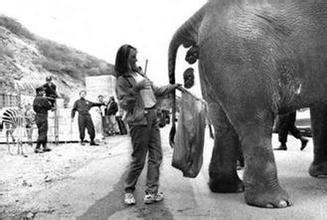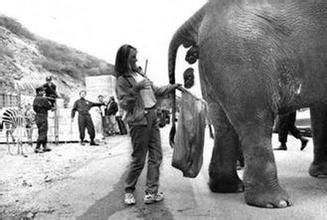Thai coffee black ivory coffee elephant dung coffee Asian coffee ivory coffee beans
Black ivory coffee
Black Ivory Coffee (Black Ivory Coffee), also known as "Elephant dung Coffee", is made from coffee beans digested and excreted by Thai elephants and produced in the Golden Triangle Asian Elephant Base. Enzymes in elephants break down proteins in beans during digestion, making them almost free of the bitterness of ordinary coffee. The coffee is produced and wholesale by Black Ivory Coffee. Due to the extremely limited supply, it is only sold in a small number of five-star hotels in the world, and the price is not cheap. In August 2013, black ivory coffee officially beat Indonesia's civet coffee to become the most expensive coffee in the world.
Black ivory coffee is made from coffee beans digested and excreted by Thai elephants. These beans are the best Thai arabica coffee beans collected from 1500 meters above sea level, while these elephants are located in the Golden Triangle Asian Elephant Base (Golden Triangle Asian Elephant Foundation,GTAEF) in northern Thailand, established by the world-famous tourist resort brand Anantara Hotels, Resorts & Spas. And Asian elephant protection agencies funded by the government, businesses and other members of the community.
Officially known as Black Ivory Coffee (Black Ivory Coffee), these special coffee beans are produced and wholesale by a company of the same name, which was founded in March 2012 by Canadian Blake Dinkin. Before that, in order to develop a coffee comparable to or better than Kopi Luwak, he spent years researching and experimenting around the world, and invited Massimo Marcone, a food scientist at the University of Guelph in Canada (who uncovered the secret of the unique flavor of Kopi Luwak coffee) to do research. After ten years of hard work, this kind of dung-like coffee finally came out.
In October 2012, this coffee was first introduced and launched by some Anatara hotels in Thailand, Maldives and other countries, and immediately attracted the world's attention for its strange way of making, unique taste and high price. Due to the removal of coffee protein, this coffee has almost no bitterness of ordinary coffee.

Important Notice :
前街咖啡 FrontStreet Coffee has moved to new addredd:
FrontStreet Coffee Address: 315,Donghua East Road,GuangZhou
Tel:020 38364473
- Prev

Coffee beans growing environment introduction boutique coffee raw boutique coffee how to grow? coffee species
Green coffee beans are the seeds of the coffee tree. It's what people usually call the hidden wealth of coffee cherries. They are mistakenly called beans because they are similar to the beans we normally see, but they are actually coffee seeds. Usually coffee berries contain two flat, oval green beans, and a few coffee berries contain only one.
- Next

Elephant coffee how to make black ivory coffee in the process of making elephant coffee
The production process is digested by the elephant and first fed to the elephant to eat Arabica coffee beans grown from about 1500 meters above sea level in northern Thailand. After the elephant eats the beans, the coffee beans go through slow digestion, movement and excretion in the elephant body. Then, the elephant men and their wives pick out the beans carefully, then dry them in the sun, and then bake them.
Related
- Guji coffee producing area of Guji, Ethiopia: Humbela, Shakiso, Wulaga
- What is the most expensive variety of Qiloso in BOP multi-variety group?
- How to store the coffee beans bought home?
- Why are Yemeni coffee beans so rare now?
- Ethiopian Sidamo all Red Fruit Sun Sun Santa Vini Coffee beans
- SOE is mostly sour? What does it mean? Is it a single bean? what's the difference between it and Italian blending?
- Is Italian coffee beans suitable for making hand-brewed coffee?
- How to choose coffee beans when making cold coffee? What kind of coffee beans are suitable for making cold coffee?
- Just entered the pit to make coffee, what kind of coffee beans should be chosen?
- Can only Japan buy real Blue Mountain Coffee? What are authentic Jamaican Blue Mountain coffee beans?

